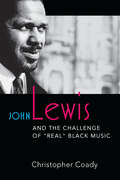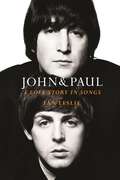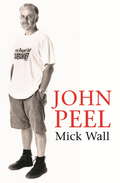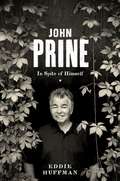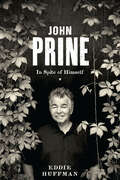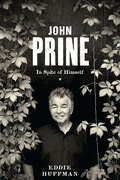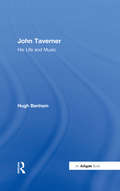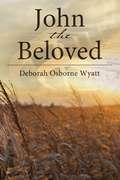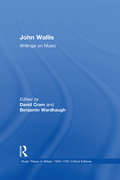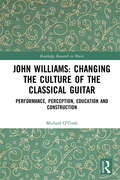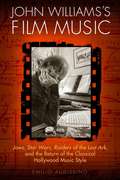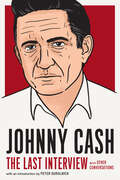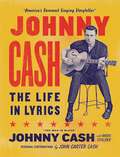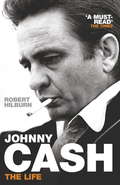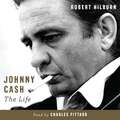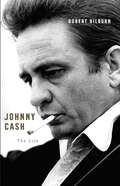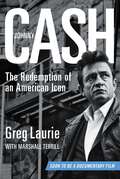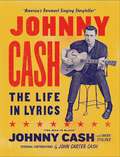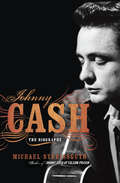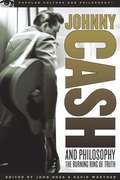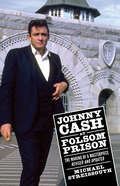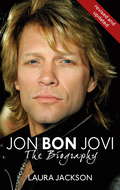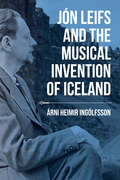- Table View
- List View
John Lewis and the Challenge of "Real" Black Music
by Christopher CoadyFor critics and listeners, the reception of the 1950s jazz-classical hybrid Third Stream music has long been fraught. In John Lewis and the Challenge of "Real" Black Music, Christopher Coady explores the work of one of the form's most vital practitioners, following Lewis from his role as an arranger for Miles Davis's Birth of the Cool sessions to his leadership of the Modern Jazz Quartet, his tours of Europe, and his stewardship of the Lenox School of Jazz. Along the way Coady shows how Lewis's fusion works helped shore up a failing jazz industry in the wake of the 1940s big band decline, forging a new sound grounded in middle-class African American musical traditions. By taking into account the sociocultural milieu of the 1950s, Coady provides a wider context for understanding the music Lewis wrote for the Modern Jazz Quartet and sets up new ways of thinking about Cool Jazz and Third Stream music more broadly.
John & Paul: A Love Story in Songs
by Ian Leslie*INSTANT NEW YORK TIMES BESTSELLER*"We think we know everything, but author Ian Leslie proves otherwise. His new book, 'John & Paul: A Love Story in Songs,' is, astonishingly, one of the few to offer a detailed narrative of John Lennon and Paul McCartney’s partnership. And it’s a revelation." ―Los Angeles Times"It is stunning to follow Leslie’s insights into how far and fast John and Paul traveled, how profound their preternatural alliance was, and how epic their heroic journey. I’m sorry John isn’t here to read this book. I hope if Paul does read it he feels the depth of appreciation and gratitude and intelligence it contains." ―The New York TimesJohn Lennon and Paul McCartney knew each other for twenty-three years, from 1957 to 1980. This book is the myth-shattering biography of a relationship that changed the cultural history of the world.The Beatles shook the world to its core in the 1960’s and, to this day, new generations continue to fall in love with their songs and their story. At the heart of this phenomenon lies the dynamic between John Lennon and Paul McCartney. Few other musical partnerships have been rooted in such a deep, intense and complicated personal relationship. John and Paul’s relationship was defined by its complexity: compulsive, tender and tempestuous; full of longing, riven by jealousy. Like the band, their relationship was always in motion, never in equilibrium for long. John & Paul traces its twists and turns and reveals how these shifts manifested themselves in the music. The two of them shared a private language, rooted in the stories, comedy and songs they both loved as teenagers, and later, in the lyrics of Beatles songs.In John & Paul, acclaimed writer Ian Leslie uses the songs they wrote to trace the shared journey of these two compelling men before, during, and after The Beatles. Drawing on recently released footage and recordings, Leslie offers us an intimate and insightful new look at two of the greatest icons in music history, and rich insights into the nature of creativity, collaboration, and human intimacy.
John Peel
by Mick Wall'Excellent ... paints an affectionate portrait of this unpretentious, humorous presenter who seems to have been loved by everyone who met him' SUNDAY TIMES'A leisurely stroll through the life of an "irreplaceable man" - [a] thoughtful, well-paced portrait' OBSERVERA tribute biography of the hugely popular DJ and broadcaster John PeelJohn Peel was born in Cheshire in 1939 and, after National Service, he eventually went into broadcasting while travelling in America, where his Liverpool accent convinced them he must know the Beatles, and he was even present when Lee Harvey Oswald was shot. In 1967 he returned to the UK and joined Radio One at its start. His late-night radio shows were cult listening for music fans of all ages, and many bands admit that without his support, they would never have made it.While Radio One changed, he remained a constant factor in its schedules, and in 1998 he was awarded the OBE for his services to broadcasting. It was in that year that he also began his multi-award-winning show Home Truths on Radio Four. Mick Wall tells the story of arguably the most influential man in the history of British rock music, speaking to those who knew him well to build up a complete portrait of this hugely popular figure.
John Prine: In Spite of Himself
by Eddie HuffmanWith a range that spans the lyrical, heartfelt songs "Angel from Montgomery," "Sam Stone," and "Paradise" to the classic country music parody "You Never Even Called Me by My Name," John Prine is a songwriter's songwriter. Across five decades, Prine has created critically acclaimed albums--John Prine (one of Rolling Stone's 500 Greatest Albums of All Time), Bruised Orange, and The Missing Years--and earned many honors, including two Grammy Awards, a Lifetime Achievement Award for Songwriting from the Americana Music Association, and induction into the Nashville Songwriters Hall of Fame. His songs have been covered by scores of artists, from Johnny Cash and Miranda Lambert to Bette Midler and 10,000 Maniacs, and have influenced everyone from Roger McGuinn to Kacey Musgraves. Hailed in his early years as the "new Dylan," Prine still counts Bob Dylan among his most enthusiastic fans. In John Prine, Eddie Huffman traces the long arc of Prine's musical career, beginning with his early, seemingly effortless successes, which led paradoxically not to stardom but to a rich and varied career writing songs that other people have made famous. He recounts the stories, many of them humorous, behind Prine's best-known songs and discusses all of Prine's albums as he explores the brilliant records and the ill-advised side trips, the underappreciated gems and the hard-earned comebacks that led Prine to found his own successful record label, Oh Boy Records. This thorough, entertaining treatment gives John Prine his due as one of the most influential songwriters of his generation.
John Prine: In Spite of Himself (American Music Series)
by Eddie Huffman&“An excellent new biography&” of the influential songwriter that showcases his renowned humor and musical genius (The Telegraph). With a range that spans the lyrical, heartfelt songs &“Angel from Montgomery,&” &“Sam Stone,&” and &“Paradise&” to the classic country music parody &“You Never Even Called Me by My Name,&” John Prine is a songwriter&’s songwriter. Across five decades, he&’s created critically acclaimed albums—John Prine (one of Rolling Stone&’s 500 Greatest Albums of All Time), Bruised Orange, The Missing Years—and earned two Grammy Awards, a Lifetime Achievement Award for Songwriting from the Americana Music Association, and induction into the Nashville Songwriters Hall of Fame. His songs have been covered by scores of artists, from Johnny Cash and Miranda Lambert to Bette Midler and 10,000 Maniacs, and influenced everyone from Roger McGuinn to Kacey Musgraves. Hailed in his early years as the &“new Dylan,&” Prine still counts Bob Dylan among his most enthusiastic fans. In John Prine, Eddie Huffman traces the long arc of Prine&’s musical career, beginning with his early, seemingly effortless successes, which led paradoxically not to stardom but to a rich and varied career writing songs that other people have made famous. He recounts the stories, many of them humorous, behind Prine&’s best-known songs and discusses all of Prine&’s albums as he explores the brilliant records and the ill-advised side trips, the underappreciated gems and the hard-earned comebacks that led Prine to found his own successful record label, Oh Boy Records. This thorough, entertaining treatment gives John Prine his due as one of the most influential songwriters of his generation.
John Prine: In Spite of Himself (American Music Series)
by Eddie Huffman&“An excellent new biography&” of the influential songwriter that showcases his renowned humor and musical genius (The Telegraph). With a range that spans the lyrical, heartfelt songs &“Angel from Montgomery,&” &“Sam Stone,&” and &“Paradise&” to the classic country music parody &“You Never Even Called Me by My Name,&” John Prine is a songwriter&’s songwriter. Across five decades, he&’s created critically acclaimed albums—John Prine (one of Rolling Stone&’s 500 Greatest Albums of All Time), Bruised Orange, The Missing Years—and earned two Grammy Awards, a Lifetime Achievement Award for Songwriting from the Americana Music Association, and induction into the Nashville Songwriters Hall of Fame. His songs have been covered by scores of artists, from Johnny Cash and Miranda Lambert to Bette Midler and 10,000 Maniacs, and influenced everyone from Roger McGuinn to Kacey Musgraves. Hailed in his early years as the &“new Dylan,&” Prine still counts Bob Dylan among his most enthusiastic fans. In John Prine, Eddie Huffman traces the long arc of Prine&’s musical career, beginning with his early, seemingly effortless successes, which led paradoxically not to stardom but to a rich and varied career writing songs that other people have made famous. He recounts the stories, many of them humorous, behind Prine&’s best-known songs and discusses all of Prine&’s albums as he explores the brilliant records and the ill-advised side trips, the underappreciated gems and the hard-earned comebacks that led Prine to found his own successful record label, Oh Boy Records. This thorough, entertaining treatment gives John Prine his due as one of the most influential songwriters of his generation.
John Taverner: His Life and Music
by Hugh BenhamJohn Taverner was the leading composer of church music under Henry VIII. His contributions to the mass and votive antiphon are varied, distinguished and sometimes innovative; he has left more important settings for the office than any of his predecessors, and even a little secular music survives. Hugh Benham, editor of Taverner‘s complete works for Early English Church Music, now provides the first full-length study of the composer for over twenty years. He places the music in context, with the help of biographical information, discussion of Taverner‘s place in society, and explanation of how each piece was used in the pre-Reformation church services. He investigates the musical language of Taverner‘s predecessors as background for a fresh examination and appraisal of the music in the course of which he traces similarities with the work of younger composers. Issues confronting the performer are considered, and the music is also approached from the listener‘s point of view, initially through close analytical inspection of the celebrated votive antiphon Gaude plurimum.
John the Beloved
by Deborah WyattDespite being raised in a religion and culture that forbids secular music, John has always heard music where others simply hear sound. Entirely self-taught, John composes music that he hides from the world; music that has never been played out loud but exists only inside his mind. Then one day while working in the cornfield, John hears beautiful music coming from a nearby farmhouse. Entranced, he walks towards the music and through an open window sees a beautiful, young lady playing the piano. This chance encounter awakens within his heart the desire to hear his own music played. John places one of his compositions in an envelope along with a note and slides it under the door of the pianist.After a life of glamour, travel and music, acclaimed concert pianist, Elise finds herself facing a personal crisis entirely alone. Needing a quiet, peaceful place to recover and heal, Elise abandons her cosmopolitan life and retreats to the Indiana farmhouse she inherited from her grandparents. Broken-hearted and ill, Elise&’s days seem to be filled with darkness and depression until she receives a note and sheet music from a stranger. Intrigued, she plays the composition and finds it to be unique, unorthodox and beautiful. Because the music brings joy into her previously dark days, Elise writes a note in response and leaves it on her doorstep hoping the mysterious person will return and find it. Thus, begins a journey that will take both John and Elise down a path that neither expected to walk. In the days ahead, they will face moral and spiritual dilemmas and will have to answer the question: will they follow God&’s plan for their lives no matter how high the cost may be?Come: follow John and Elise on a musical journey that will either bring them the greatest heartache they have ever known or the greatest joy.
John Wallis: Writings On Music (Music Theory In Britain, 1500âe 1700: Critical Editions Ser.)
by David Cram and Benjamin WardhaughJohn Wallis (1616-1703), was one of the foremost British mathematicians of the seventeenth century, and is also remembered for his important writings on grammar and logic. An interest in music theory led him to produce translations into Latin of three ancient Greek texts - those of Ptolemy, Porphyry and Bryennius - and involved him in discussions with Henry Oldenburg, the Secretary of the Royal Society, Thomas Salmon and other individuals as his ideas developed. The texts presented in this volume cover the relationship of ancient and modern tuning theory, the building of organs, the phenomena of resonance, and other musical topics.
John Williams: Performance, perception, education and construction (Routledge Research in Music)
by Michael O'TooleThis book assesses the influence and reception of many different forms of guitar playing upon the classical guitar and more specifically through the prism of John Williams. Beginning with an examination of Andrés Segovia and his influence upon Williams’ life’s work, a further three incisive chapters cover key areas such as performance, perception, education and construction, considering social and cultural contexts of the guitar over the past century. A final chapter on new directions in classical guitar examines the change in reception of the instrument from the mid-1970s to the present day, and Williams’ impact upon what might be termed ‘standard classical guitar repertoire’. With in-depth discussion of the cultural and perceptual impact of Williams’ more daring crossover projects and numerous musical examples, this is an informative reference for all classical guitar practitioners, as well as scholars and researchers of guitar studies, reception studies, cultural musicology and performance studies. An online lecture by the author and a transcript of the author’s interview with John Williams are also available as e-resources.
John Williams's Film Music: Jaws, Star Wars, Raiders of the Lost Ark, and the Return of the Classical Hollywood Music Style
by Emilio AudissinoJohn Williams is one of the most renowned film composers in history. He has penned unforgettable scores for "Star Wars," the "Indiana Jones "series, "E. T. the Extra-Terrestrial," "Jaws," "Superman," and countless other films. Fans flock to his many concerts, and with forty-nine Academy Award nominations as of 2014, he is the second-most Oscar-nominated person after Walt Disney. Yet despite such critical acclaim and prestige, this is the first book in English on Williams's work and career. Combining accessible writing with thorough scholarship, and rigorous historical accounts with insightful readings, "John Williams's Film Music "explores why Williams is so important to the history of film music. Beginning with an overview of music from Hollywood's Golden Age (1933-58), Emilio Audissino traces the turning points of Williams's career and articulates how he revived the classical Hollywood musical style. This book charts each landmark of this musical restoration, with special attention to the scores for "Jaws" and" Star Wars," Williams's work as conductor of the Boston Pops Orchestra, and a full film/music analysis of "Raiders of the Lost Ark. " The result is a precise, enlightening definition of Williams's "neoclassicism" and a grounded demonstration of his lasting importance, for both his compositions and his historical role in restoring part of the Hollywood tradition. "
John Zorn’s File Card Works: Hypertextual Intermediality in Composition and Analysis (ISSN)
by Maurice WindleburnThis book is the first study of John Zorn’s ‘file card’ works, with special focus made on the pieces Godard (1985), Spillane (1986), Interzone (2010), and Liber Novus (2010). It explains the unique creative process behind these compositions, contextualizing them in relation to the history of file cards, the ‘open work’ concept, cinematic listening, and uncreative aesthetics. Semiotic, hermeneutic, and ekphrastic analyses draw hypertextual links between the four file card compositions and the worlds of their respective dedicatees: author Mickey Spillane, filmmaker Jean-Luc Godard, novelist William S. Burroughs and painter Brion Gysin, and psychiatrist C. G. Jung.This book will appeal not only to those interested in Zorn’s music, but also to scholars of music semiotics and hermeneutics, intermedia studies, and avant-garde music.
Johnny Cash: and Other Conversations (The Last Interview Series)
by Johnny CashJohnny Cash seemed like the stuff of legend when he was alive, and even more so as he achieved something close to sainthood in death. The interviews collected here bring us closer to the actual man: brilliant, falliable, introspective, and longing for redemption.Mythmaker, philosopher, sinner, and saint, Johnny Cash is perhaps the quintessential American icon. Though often rebellious and unruly, he rarely spoke without intention, sincerity, and a bit of poetry. Together with an introduction by music critic Peter Guralnick, the interviews here spotlight that inimitable rhetorical style, and the fascinating diversity of subjects that made him as relatable as he was mysterious. From a hopped up early interview with Pete Seeger, to a meditation on sobriety, to the last interview in which he stares calmly into the face of death, this collection brings together decades of insight as deeply profound as the unforgettable baritone of The Man in Black himself.
Johnny Cash: The Life In Lyrics
by Johnny CashThe life of the Man in Black revealed by his lyrics and by rare photographs and ephemera, in a collectible edition featuring 125 of his most iconic songs, authorized by the Cash estate Johnny Cash is one of the most beloved and influential country-music stars of all time, having composed more than six hundred songs and sold more than ninety million records. He received twenty-nine gold, platinum, and multiplatinum awards for his recordings and has been inducted into the Grammy Hall of Fame, the Rock & Roll Hall of Fame, the Country Music Hall of Fame, and the Hollywood Walk of Fame. This is the first time Cash&’s fifty years of songwriting have been collected anywhere; this book includes the lyrics to 125 songs and the stories behind them. Perhaps more than any other American artist, he spoke to the soul of the nation as well as to the triumphs and challenges of his own life. These pages explore Cash's range as a poet and storyteller, taking readers from his early life and first successes through periods of personal challenge, activism, and faith. The result is a profound understanding of Johnny Cash as a man and an artist, as well as the American story he helped shape. An essential collectible that sheds new light on Cash&’s life and work, this book includes rare visual material in addition to remembrances from Cash&’s son, John Carter Cash, &“family historian&” Mark Stielper. Released for the twentieth anniversary of the legendary musician&’s passing, it will be a landmark in music publishing
Johnny Cash: The Life
by Robert Hilburn'Johnny Cash ... Every man could relate to him, no man could be him, and only one man could get inside his head - Robert Hilburn' BONOPeople don't just listen to Johnny Cash: they believe in him. But no one has told the Man in Black's full story, until now.In Johnny Cash: The Life, Robert Hilburn conveys the unvarnished truth about a musical icon, whose colourful career stretched from his days at Sun Records with Elvis Presley and Jerry Lee Lewis to his remarkable, brave and deeply moving 'Hurt' video, aged sixty-nine. As music critic for the Los Angeles Times, Hilburn knew Cash well throughout his life: he was the only music journalist at the legendary Folsom Prison concert in 1968, and he interviewed Cash and his wife June Carter for the final time just months before their deaths in 2003. Hilburn's rich reporting shows the remarkable highs and deep lows that followed and haunted Cash in equal measure. A man of great faith and humbling addiction, Cash aimed for more than another hit for the jukebox; he wanted his music to lift people's spirits.Drawing upon his personal experience with Cash and a trove of never-before-seen material from the singer's inner circle, Hilburn creates an utterly compelling, deeply human portrait of one of the most iconic figures in modern popular culture - not only a towering figure in country music, but also a seminal influence in rock, whose personal life was far more troubled, and whose musical and lyrical artistry much more profound, than even his most devoted fans ever realised.
Johnny Cash: The Life
by Robert HilburnPeople don't just listen to Johnny Cash: they believe in him. But no one has told the Man in Black's full story, until now.In Johnny Cash: The Life, Robert Hilburn conveys the unvarnished truth about a musical icon, whose colourful career stretched from his days at Sun Records with Elvis Presley and Jerry Lee Lewis to his remarkable, brave and deeply moving 'Hurt' video, aged sixty-nine. As music critic for the Los Angeles Times, Hilburn knew Cash well throughout his life: he was the only music journalist at the legendary Folsom Prison concert in 1968, and he interviewed Cash and his wife June Carter for the final time just months before their deaths in 2003. Hilburn's rich reporting shows the remarkable highs and deep lows that followed and haunted Cash in equal measure. A man of great faith and humbling addiction, Cash aimed for more than another hit for the jukebox; he wanted his music to lift people's spirits.Drawing upon his personal experience with Cash and a trove of never-before-seen material from the singer's inner circle, Hilburn creates an utterly compelling, deeply human portrait of one of the most iconic figures in modern popular culture - not only a towering figure in country music, but also a seminal influence in rock, whose personal life was far more troubled, and whose musical and lyrical artistry much more profound, than even his most devoted fans ever realised.Read by Charles Pittard(p) 2013 Hachette Audio
Johnny Cash: The Life (Ala Notable Books For Adults Ser.)
by Robert HilburnThe definitive biography of an American legend In Johnny Cash: The Life, Robert Hilburn conveys the unvarnished truth about a musical icon whose colorful career stretched from his days at Sun Records with Elvis Presley and Jerry Lee Lewis to the remarkable creative last hurrah, at age sixty-nine, that resulted in the brave, moving "Hurt" video. As music critic for the Los Angeles Times, Hilburn knew Cash well throughout his life: he was the only music journalist at the legendary Folsom Prison concert in 1968, and he interviewed Cash and his wife June Carter for the final time just months before their deaths in 2003. Hilburn's rich reporting shows the remarkable highs and deep lows that followed and haunted Cash in equal measure. A man of great faith and humbling addiction, Cash aimed for more than another hit on the jukebox; he wanted to use his music to lift people's spirits and help promote what he felt was the best of the American spirit.Drawing upon his personal experience with Cash and a trove of never-before-seen material from the singer's inner circle, Hilburn creates an utterly compelling, deeply human portrait of one of the most iconic figures in modern popular culture - not only a towering figure in country music, but also a seminal influence in rock, whose personal life was far more troubled, and whose musical and lyrical artistry much more profound, than even his most devoted fans ever realized.
Johnny Cash: The Redemption of an American Icon
by Greg LaurieJoin Greg Laurie, pastor and bestselling author of Steve McQueen: The Salvation of an American Icon, as he takes you on a personal journey into the life and legend of Johnny Cash. At the peak of his career, Cash had done it all—living the ultimate rags-to-riches story of growing up on a cotton farm in the Deep South to becoming a Nashville and Hollywood sensation, singing alongside heroes like Elvis Presley and performing for several American presidents. But through all of this, Cash was troubled. By the time he released the iconic Man in Black album in 1971, the middle-aged icon was broken down, hollow-eyed, and wrung out. In his search for peace, Cash became embroiled in controversy. He was arrested five times in seven years. His drug- and alcohol-induced escapades led to car accidents and a forest fire that devastated 508 acres. His time was divided between Jesus and jail, gospel tunes and the “Cocaine Blues.” But by the end of his life, Cash was speaking openly about his “unshakeable faith.” What caused the superstar to turn from his conflicting passions to embrace a life in Christ? Johnny Cash: The Redemption of an American Icon dives deep into the singer’s inner demons, triumphs, and gradual return to faith. Laurie interviews Cash’s family, friends, and business associates to reveal how the singer’s true success came through finding the only Person whose star was bigger than his own.
Johnny Cash: The official, fully illustrated celebration of the Man in Black
by Mark Stielper Johnny Carter Cash Johnny CashThe life of the Man in Black is revealed through his lyrics and by rare photographs and ephemera, in this beautifully illustrated official hardback edition, fully authorised by the Cash estate and featuring 125 of his most iconic songs. Johnny Cash is one of the most beloved and influential country stars of all time, selling more than ninety million records, blending country, rock, blues, and gospel in his music and having been inducted into the Grammy Hall of Fame, the Rock & Roll Hall of Fame, the Country Music Hall of Fame, and the Hollywood Walk of Fame. Now, Cash's fifty years of songwriting have been collected for the first time ever. An essential collectible that sheds new light on Cash's life and work, this book includes rare visual material in addition to remembrances from Cash's son, John Carter Cash, and "family historian" Mark Stielper. Released for the twentieth anniversary of the legendary musician's passing, it is a landmark moment in music publishing and a visually stunning celebration of one of the world's most significant artists.
Johnny Cash: The Biography (American Made Music Ser.)
by Michael StreissguthTo millions, he was the rebellious Man in Black, the unabashed patriot, the redeemed Christian-the king of country music. But Johnny Cash (1932-2003) was also an uncertain country boy whose dreams were born in the cotton fields of Arkansas and who struggled his entire life with a guilt-ridden childhood, addictions, and self-doubt. Johnny Cash: The Biography explores many often overlooked aspects of the legend's life and career, uncovering the origins of his songwriting and trademark boom-chicka-boom rhythm and delving into the details of his personal life, including his drug dependency, which dogged him long after many thought he'd beaten it. Scrupulously researched, passionately told, Johnny Cash: The Biography is the unforgettable portrait of an enduring American icon.
Johnny Cash and Philosophy: The Burning Ring of Truth
by John Huss David WertherIn Johnny Cash and Philosophy, twenty-one philosophers explore the implications of the Johnny Cash myth and the Johnny Cash message. Their investigations uncover the distinctive relevance of Johnny Cash for moral responsibility, social justice, patriotism, romantic love, artistic creativity, class oppression, and individual identity.
Johnny Cash at Folsom Prison: The Making of a Masterpiece, Revised and Updated (American Made Music Series)
by Michael StreissguthOn January 13, 1968, Johnny Cash (1932–2003) took the stage at Folsom Prison in California. The concert and the live album, At Folsom Prison, propelled him to worldwide superstardom. He reached new audiences, ignited tremendous growth in the country music industry, and connected with fans in a way no other artist has before or since. Johnny Cash at Folsom Prison: The Making of a Masterpiece, Revised and Updated is a riveting account of that day, what led to it, and what followed. Michael Streissguth skillfully places the album and the concert in the larger context of Cash’s artistic development, the era’s popular music, and California’s prison system, uncovering new angles and exploding a few myths along the way. Scrupulously researched, rich with the author’s unprecedented archival access to Folsom Prison’s and Columbia Records’ archives, Johnny Cash at Folsom Prison shows how Cash forever became a champion of the downtrodden, as well as one of the more enduring forces in American music.This revised edition includes new images and updates throughout the volume, including previously unpublished material.
Jon Bon Jovi: The Biography
by Laura JacksonThis fascinating biography provides a detailed portrait of the high-energy, charismatic international superstar and frontman of the ever-popular band, Bon Jovi. The book charts Jon's relationship with the other band members who have their fair share of rock and roll stories - sex, booze, burnouts, health and women problems. Although rock music is Jon Bon Jovi's first love, he has more recently developed an interest in acting - starring in various hit TV shows such as Ally McBeal and Sex and the City and attracting critical acclaim for his role in World War II hit film, U-571. He has also scored film music, with his score for Young Guns earning him an Oscar nomination. Bestselling writer Laura Jackson explores the personality, character, drive and the determination that have taken him from playing New Jersey clubs through all the groupie excess and glamorous indulgence to where the band is today. Two new chapters in this updated edition detail his recent work for charity, his involvement in politics and football and also give an update on the band's new albums and tours.
Jon Bon Jovi: The Biography
by Laura JacksonThis fascinating biography provides a detailed portrait of the high-energy, charismatic international superstar and frontman of the ever-popular band, Bon Jovi. The book charts Jon's relationship with the other band members who have their fair share of rock and roll stories - sex, booze, burnouts, health and women problems. Although rock music is Jon Bon Jovi's first love, he has more recently developed an interest in acting - starring in various hit TV shows such as Ally McBeal and Sex and the City and attracting critical acclaim for his role in World War II hit film, U-571. He has also scored film music, with his score for Young Guns earning him an Oscar nomination. Bestselling writer Laura Jackson explores the personality, character, drive and the determination that have taken him from playing New Jersey clubs through all the groupie excess and glamorous indulgence to where the band is today. Two new chapters in this updated edition detail his recent work for charity, his involvement in politics and football and also give an update on the band's new albums and tours.
Jón Leifs and the Musical Invention of Iceland (Music, Nature, Place)
by Árni IngólfssonIn Jón Leifs and the Musical Invention of Iceland, Árni Heimir Ingólfsson provides a striking account of the dramatic career of Iceland's iconic composer. Leifs (1899–1968) was the first Icelander to devote himself fully to composition at a time when a local music scene was only beginning to take form. He was a fervent nationalist in his art, fashioning an idiosyncratic and uncompromising 'Icelandic' sound from traditions of vernacular music with the aim to legitimize Iceland as an independent, culturally empowered nation.In addition to exploring Leifs's career, Ingólfsson provides detailed descriptions of Leifs's major works and their cultural contexts. Leifs's music was inspired by the Icelandic landscape and includes auditory depictions of volcanos, geysers, and waterfalls. The raw quality of his orchestral music is frequently enhanced by an expansive percussion section, including anvils, stones, sirens, bells, ships' chains, shotguns, and cannons.Largely neglected in his own lifetime, Leifs's music has been rediscovered in recent years and hailed as a singular and deeply original contribution to twentieth-century music. Jón Leifs and the Musical Invention of Iceland enriches our understanding and appreciation of Leifs and his music by exploring the political, literary and environmental contexts that influenced his work.
